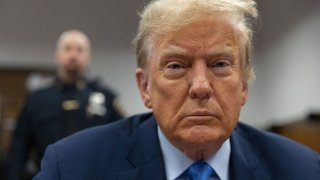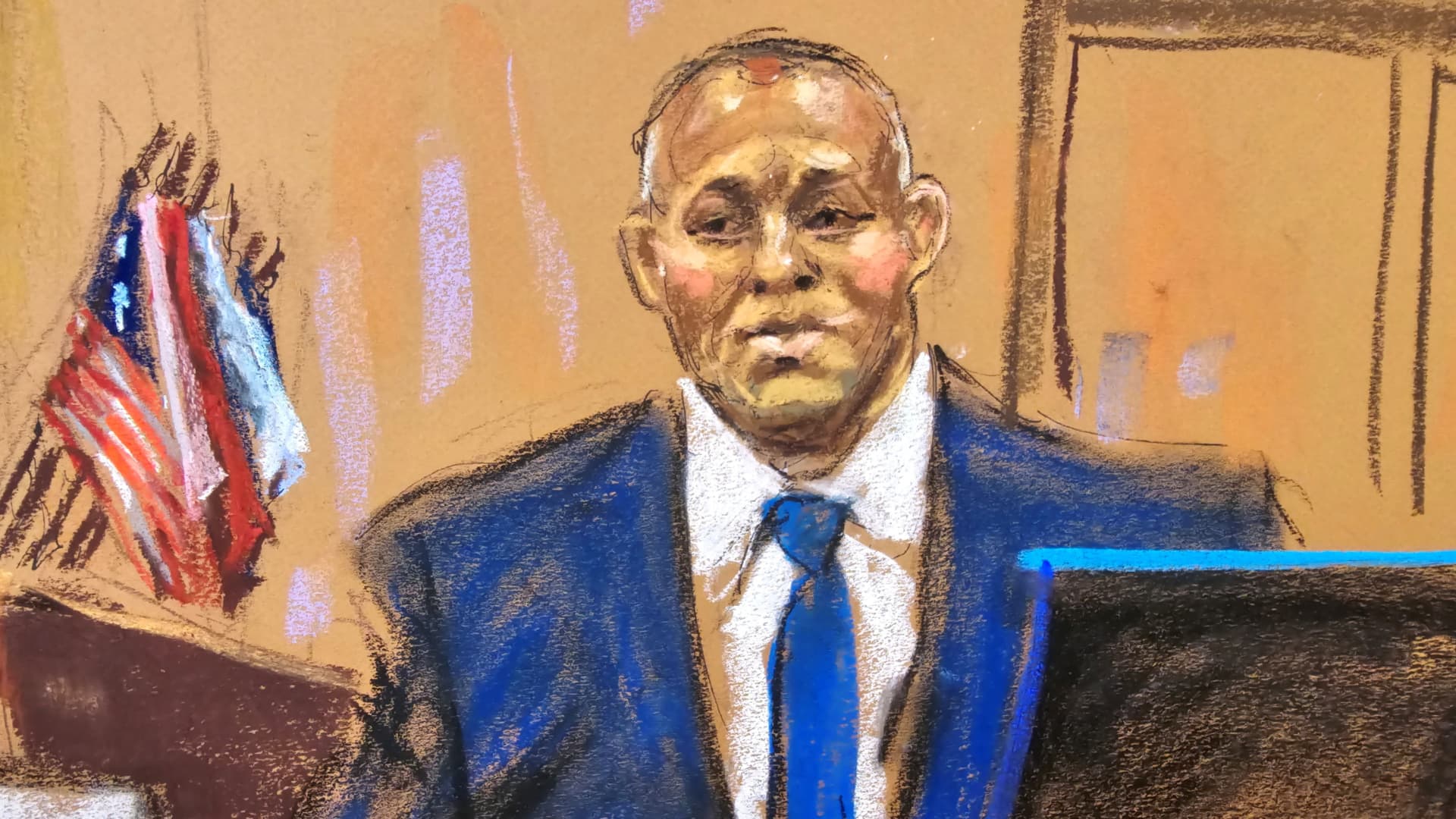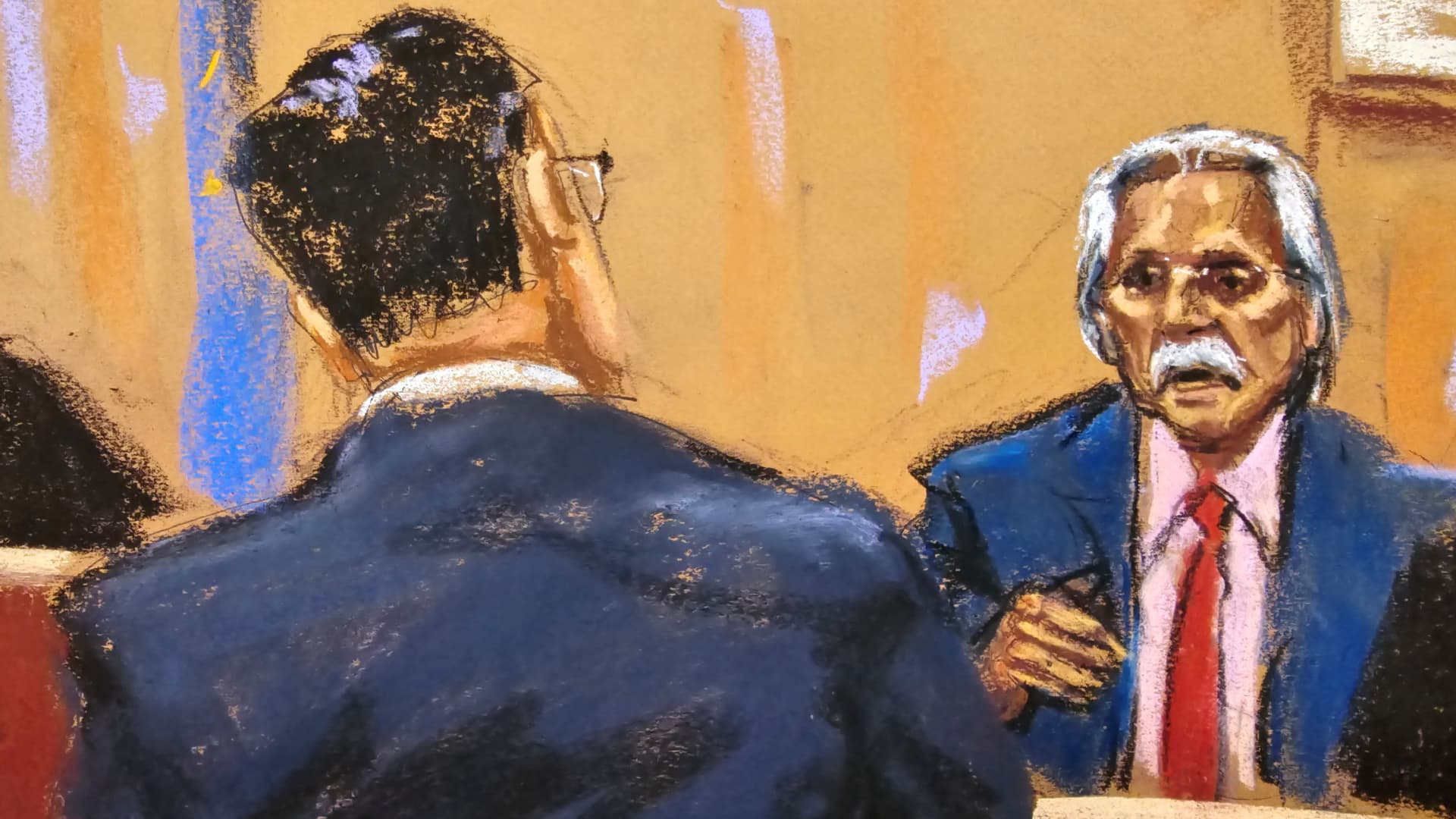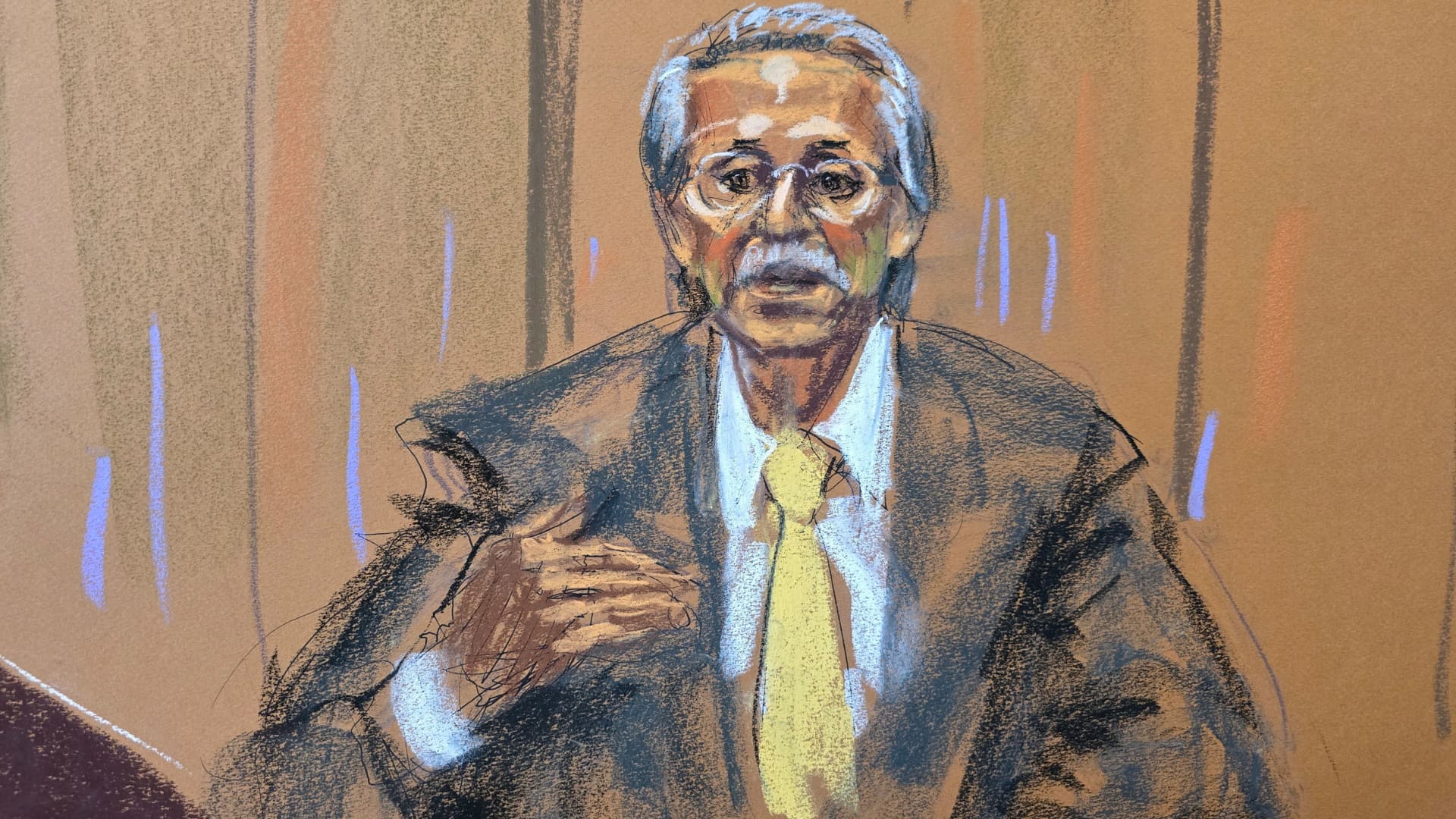
- Defense attorneys for former President Donald Trump cross-examined former National Enquirer publisher David Pecker.
- Shortly before 3:00 p.m., prosecutors called a new witness, longtime Trump secretary Rhona Graff. They also called a banker who had details of a payment that is key to the case.
- Trump is charged with 34 counts of falsifying business records as part of a scheme to cover up a reimbursement payment to his lawyer and personal fixer to buy the silence of Stormy Daniels.
This is a developing story and will be updated throughout the day.
Prosecutors called two new witnesses Friday afternoon in former President Donald Trump's New York criminal hush money trial.
The first was Trump's longtime personal secretary Rhona Graff. Considered by many to be the most influential gatekeeper of the former president during his years at the Trump Organization, Graff said Friday that she no longer works for Trump but that her attorneys were being paid by the Trump Organization.
Get top local stories in Connecticut delivered to you every morning. >Sign up for NBC Connecticut's News Headlines newsletter.
Graff confirmed that Trump had saved contact information for two women at the heart of the hush money case, former Playboy playmate Karen McDougal and Stormy Daniels, an adult film star.
After Graff, prosecutors called a banker, Gary Farro, who was a senior managing director at First Republic Bank in 2016, when the hush money payment that is key to the charge against Trump was made.

Farro described how former Trump lawyer Michael Cohen worked with him to get $130,000 into a First Republic bank account, money that Cohen later paid to Daniels through her attorney to buy her silence.
Money Report
Graff and Farro's testimonies came after defense attorneys spent the morning cross-examining former National Enquirer publisher David Pecker. The cross came after three days during which Pecker gave damning testimony for the prosecution.
Pecker's cross-examination
Among the questions from Trump attorney Emil Bove to Pecker were whether it was standard practice for the National Enquirer, the tabloid magazine Pecker once published, to have relationships with outside sources like Trump and his then-attorney Michael Cohen. Pecker said it was.
Pecker also seemed to confirm that the National Enquirer for years would often just recirculate old critical news stories, including hit pieces on former President Bill Clinton and his wife, Hillary Clinton, who ran for president in 2016 against Trump.

Pecker later got pushed on his relationship with Cohen, in an apparent effort by Bove to suggest that the two were closer than previously known.
Bove said Cohen wanted Pecker in 2016 to try to get him a job at a company called iPayments, and that he was also looking for help to get a position working with businessman Mark Cuban.
Pecker confirmed that Cohen asked him to send paparazzi to a meeting between the Trump lawyer and Cuban. He did not say whether he actually sent the photographers.
The hush-money agreement between Pecker's publishing company, American Media, and McDougal also came into focus during the Friday testimony. Bove tried to portray the financial agreement as largely focused on boosting McDougal's media career.
Prosecutors and Pecker have described it all week as an attempt to bury McDougal's story about her alleged affair with Trump because the story could have hurt Trump's presidential campaign.
Pecker admitted that American Media ran dozens of stories under McDougal's byline, and he told her that the value of the services portion of her agreement was worth "hundreds of thousands of dollars."
Pecker's testimony was also the latest instance that shows how close the media executive was to Trump throughout the campaign and the early days of his presidency.
Pecker touched on a meeting in August 2015 at Trump Tower in New York featuring Trump and Cohen. The testimony later shifted gears to another meeting on Jan. 6, 2017, that Pecker attended at Trump Tower, where he saw Reince Priebus and Mike Pompeo sitting with Trump. Priebus and Pompeo would later become White House chief of staff and secretary of state, respectively, in the Trump administration.
Entering the courtroom Friday morning, Trump said he thought things went "very well" in the trial on Thursday.
He also complained about how cold it is in the courtroom and what he claims are conflicts of interest by the judge. He called the proceedings "a rigged trial." Trump has repeatedly made those same allegations on social media.
Pecker's earlier testimony
Pecker testified earlier this week about the "catch and kill" scheme he devised along with Trump and Cohen to buy the rights to negative tabloid stories about Trump during the 2016 presidential campaign and not publish them, essentially killing them.

Pecker described how his publishing company paid $30,000 to a former Trump Tower doorman for a story he did not believe was true, and another $150,000 to McDougal for the rights to her story about an alleged affair, which Pecker said he did believe was true.
Pecker also explained how, after buying the first two stories and not being reimbursed by Trump for them, he was not willing to pay another $130,000 to buy the silence of Daniels, who alleged she had a sexual encounter with Trump a decade before he ran for president.
Pecker sat just feet away from Trump as he spoke, and the two men occasionally looked at each other. Trump is charged with 34 counts of falsifying business records as part of a scheme to cover up reimbursement payments that he eventually made to Cohen after his lawyer and personal fixer paid the $130,000 to buy Daniels' silence.
Pecker also testified that he suspected the company's payments for the doorman's silence and McDougal's story might constitute campaign finance violations, because they were essentially undeclared contributions to assist Trump's campaign for president.
He consulted a campaign finance lawyer on the matter, but the publishing company AMI, the National Enquirer's parent company, later received an inquiry from the Federal Election Commission about the payments.
The company ultimately admitted to a campaign finance violation and paid a fine in 2021 of more than $180,000 in a conciliation agreement with the FEC to settle the matter.






